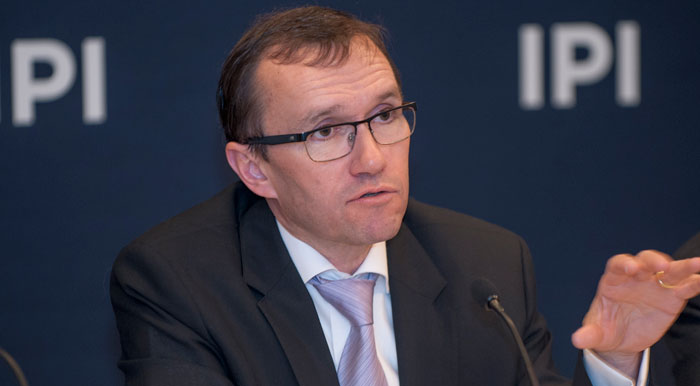
The UN Peacebuilding Commission (PBC) was created to ensure long-term engagement in postconflict countries and prevent relapse into conflict by coordinating UN action. But how can the PBC, a New York–based body, integrate the UN’s work in the field? This was the central question at a policy forum organized by Norway’s Ministry of Foreign Affairs and IPI, in collaboration with the UN Peacebuilding Support Office (PBSO), held at IPI on April 17, 2013.
The panelists included Espen Barth Eide, Foreign Minister of Norway; Judy Cheng-Hopkins, Assistant Secretary-General, UN PBSO; Ambassador Ranko Vilović of Croatia and Chairperson of the PBC; Ambassador Marjon Kamara of Liberia; and Parfait Onanga-Anyanga, Special Representative of the Secretary-General and Head of the United Nations Office in Burundi (BNUB).
Panelists discussed how the PBC can bridge the gap between New York and the field, offering the following views:
1. The PBC was created in 2005 to bring together actors and stakeholders in New York in order to better integrate the UN’s postconflict interventions. Today, the PBC has thirty-one member states and multiple configurations, and many question whether this structure allows strategic integration or merely adds an institution and another layer of bureaucracy at UN headquarters.
2. With the ten-year review of the PBC quickly approaching in 2015, the time for evaluation and re-structuring is now. A more nimble body that maintains its field-focus and engages with key stakeholders—those invested in preventing relapse in a specific country—could make a greater impact in the field. But as an intergovernmental advisory body, the PBC and its secretariat, the PBSO, need input from member states to guide its reform process.
3. The PBC should take advantage of its New York location and proximity to important UN bodies, such as the Security Council. New York offers broader outreach opportunities to mobilize resources and build strategic priorities beyond the UN, through the development of relationships with the private sector, foundations, and civil society.
4. The experience of peacebuilding and the role of the PBC are different in every country, making field-based interface mechanisms and partners vital. The PBC can strengthen field integration and coordination by supporting the special representative of the Secretary-General (SRSG). In Liberia, a joint steering committee co-chaired by the SRSG and national government ministers coordinates peacebuilding and monitors progress, liaising with the PBC’s Liberia configuration.
5. The PBC can support national strategic peacebuilding priorities through coordination, shared vision and purpose, and consultation among partners. The PBC’s coordination role has worked in Burundi in part because the strategic framework that was put in place centers on national ownership and involves key partners in the country and the region.
IPI President Terje Rød-Larsen moderated the discussion.
ipi_meeting_brief-pbc-how_ to_bridge_the_gap.pdf
Watch event:







